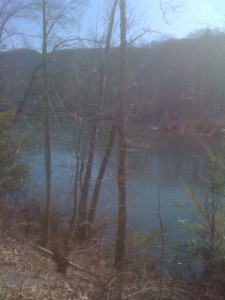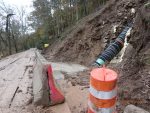We environmental advocates often come to our work through a great love for the natural world. That only makes sense. But it is easy for us to get so caught up in our intense efforts to help the planet that we can forget the beauty that’s immediately around us. Walking by one of our beautiful rivers is a calming and healing experience. The sunlight gleaming and the gentle shushing of the water can quickly put me in a more attentive and mindful state. It helps me gain clarity.
I’ve been doing a great deal of work lately on water protection issues, especially as they relate to Marcellus shale gas drilling. Each gas well requires up to five million gallons of water – water that is extracted from our West Virginia streams. During the fracking process, hundreds of pounds of chemicals, some of them highly toxic, are added to the water, which is then injected into the well under tremendous pressure. The pressure breaks apart the shale, releasing the gas to rise to the surface.
Once the fracking operation is complete, the water returns to the surface, laden with the chemicals and other salts. In West Virginia, this “produced water” is re-used by some companies in a closed loop process to frack other nearby wells under construction. But for its final disposal, it is most often injected deep into the ground, removing those millions of gallons of water from the planet’s water cycle forever. Our state is systematically being robbed of its water – some of the cleanest and best in the eastern United States.
Is cheap natural gas worth the price? And what would gas really cost if we factored in the loss of fresh water forever?
So get outside and enjoy a beautiful river! Then contact your West Virginia legislators and request additional regulations to protect our water from every stage of gas drilling – fracking to disposal. Tell them specific permits and evaluation should be required for all water withdrawals associated with Marcellus shale drilling operations.












